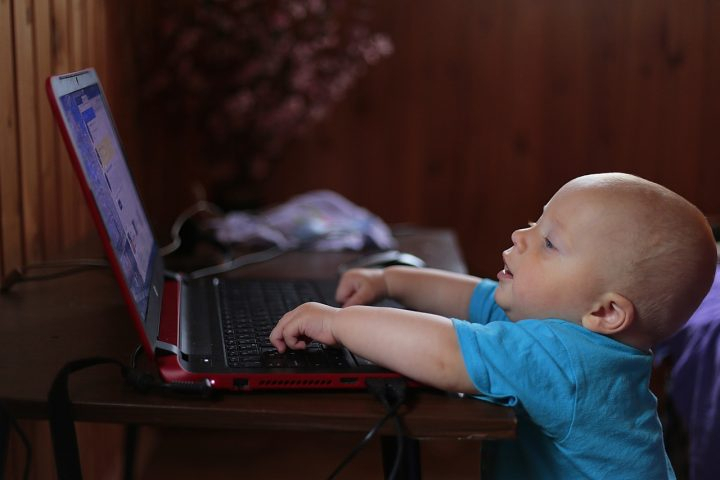
Does your child spend hours watching the screen? Drag them away as a new study shows that structural differences in the brains of preschool-age children are related to screen-based media exposure and its use. The study explains that children who devote more time to the screen show lower scores and less structural integrity of white matter tracts in those areas of their brains that are related to linguistic and literacy abilities.
This includes imagery and executive function, which is a system involving self-control and regulation. Conducted in the Cincinnati Children's Hospital Medical Center, the study assessed screen time in terms of the American Academy of Pediatrics (AAP) recommendations. They not only took into account the time spent in front of screens but also the access to them, including portable devices. The study also involved the content, the company kept by children and their interaction with others.
"This study raises questions as to whether at least some aspects of screen-based media used in early childhood may provide sub-optimal stimulation during this rapid, formative state of brain development," says John Hutton, director of the Reading & Literacy Discovery Center at Cincinnati Children's Hospital and lead author of the study that was published in JAMA Pediatrics.
Hutton roped in 47 healthy children for the study. They comprised of 27 girls and 20 boys aged between 3 and 5 years, along with their parents. Following standard cognitive tests and then the diffusion tensor MRI, the team understood the role of white matter integrity in the brain. Parents were assessed with a 15-item screening tool, the ScreenQ. Those ScreenQ scores got linked with cognitive test scores as well as MRI measures, also factoring age, gender and income rates.
AAP's recommendations are interesting. They advise that for children younger than 18 months, screen media should not be used apart from video-chatting. Parents of children aged 18 to 24 months, wanting to introduce digital media to the children, need to opt for high-quality programming. They should be the viewers of the programmes along with their children.
For children aged 2 to 5 years, there should be no screen use viewership, apart from an hour per day of high-quality sessions. Parents should watch the media with their children so that they can help kids to understand and process what they see and apply to the outside world. The elders should spend a lot of time with their children, away from the screen media.
The study made the scientists conclude that screen time is leading to low scores in language, processing speed and emergent literacy skills. It also leads to lower brain white matter integrity impacting cognitive organization and myelination, or the formation of myelin sheaths around nerves, in order to enable nerve impulses to move fast in regions including linguistic skills.









